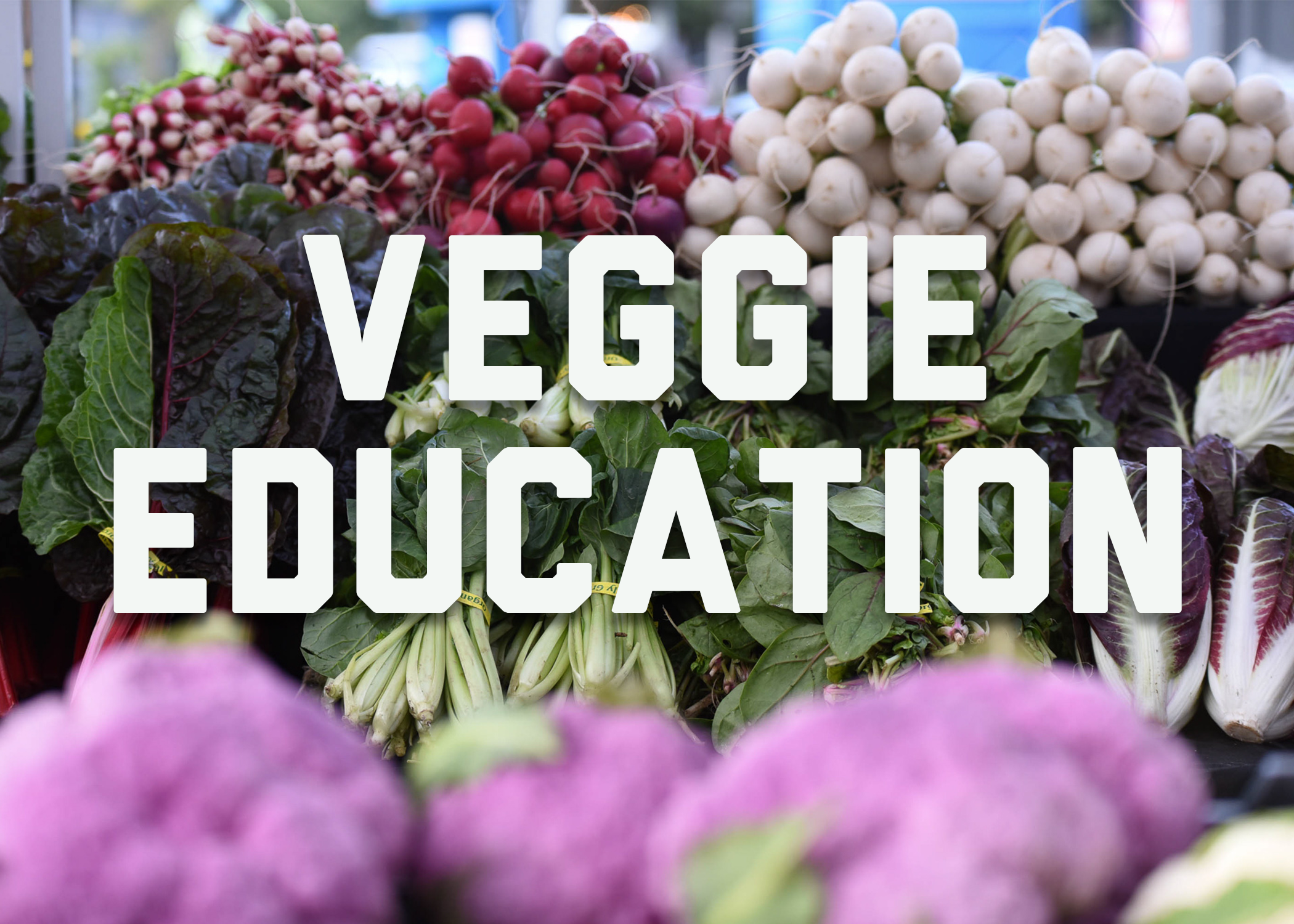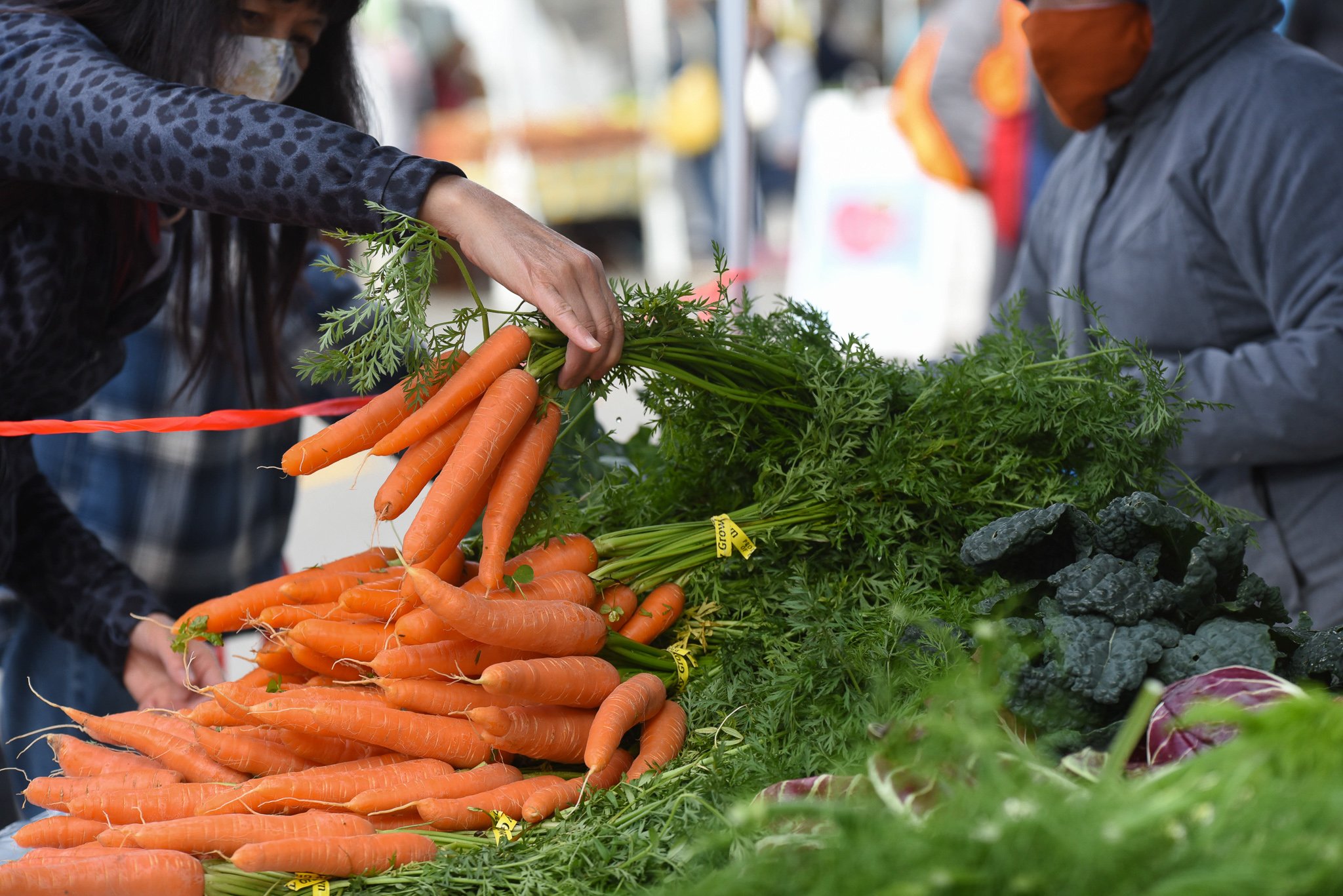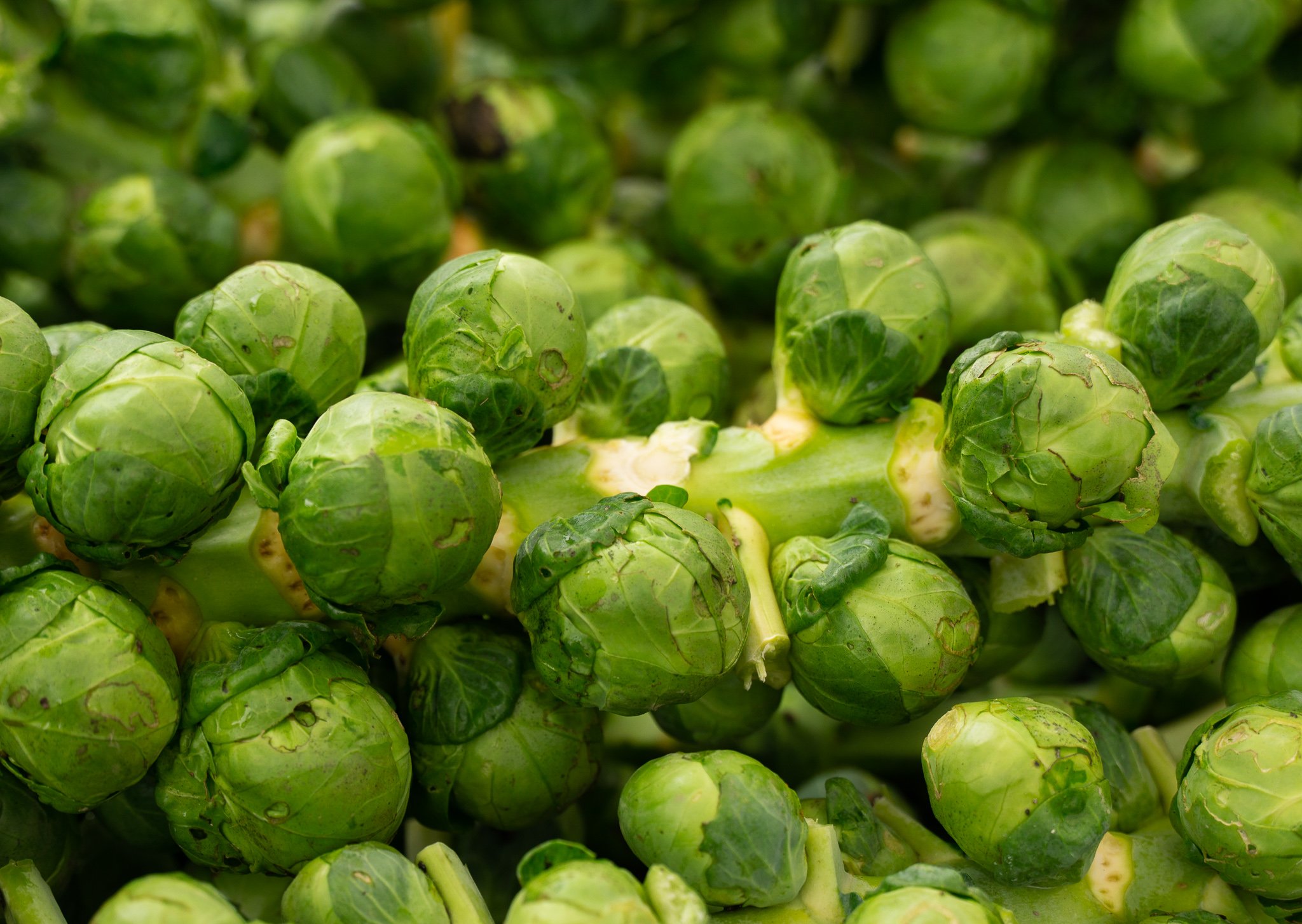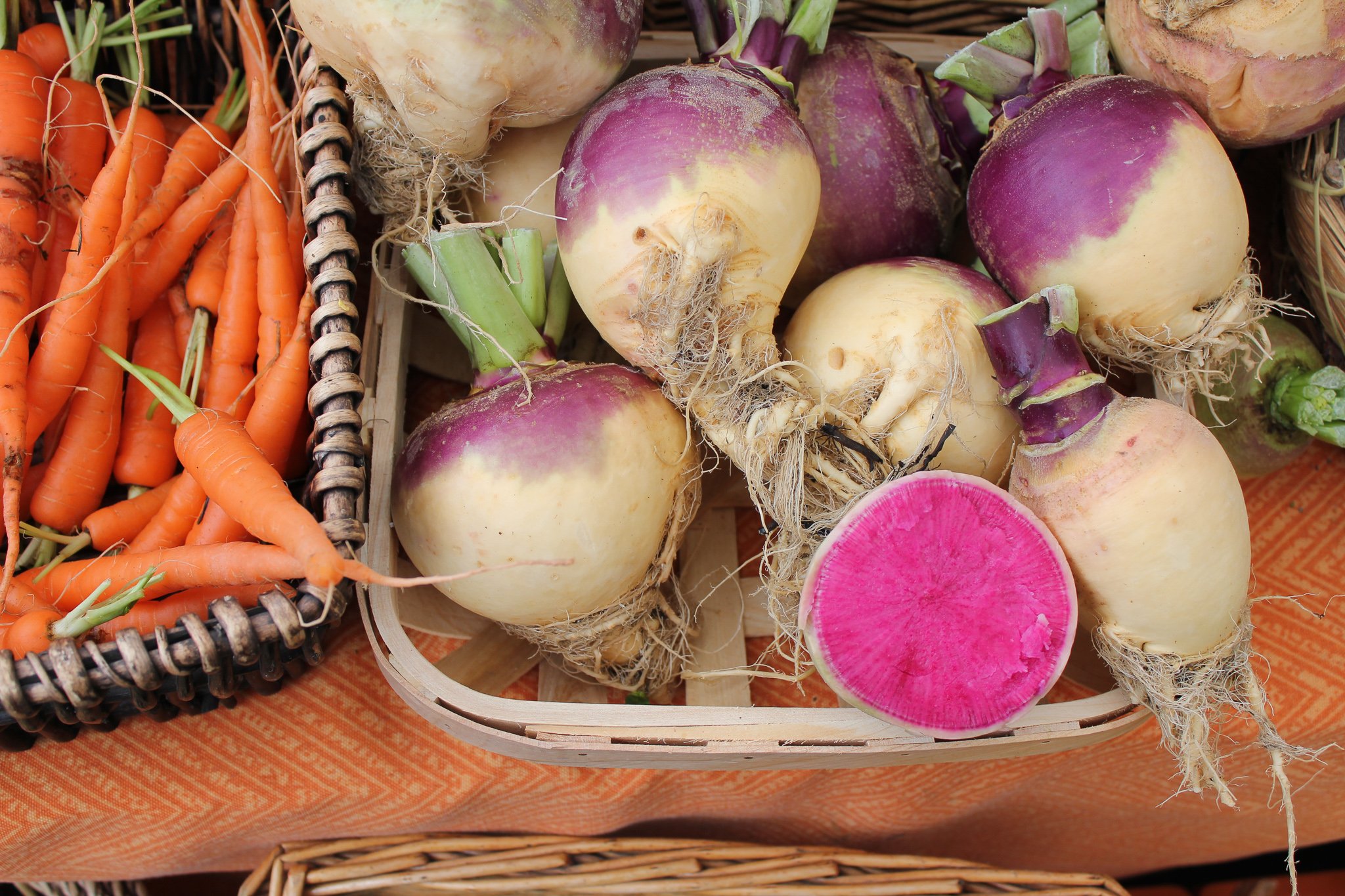Veggie Education
If one of your new year’s resolutions was to eat more fruits and veggies but you’re not really sure where to begin, we are here to help! We will be taking common, in-season, fruits and veggies and giving you lots of fun and easy ways to integrate them into your meals! We’ll teach you how to store them to make them last longer, how to use them in different meals, and what kind of health benefits they can offer.
Carrots
These bright root vegetables are packed full of antioxidants and vitamins. They are rich in beta-carotene, that your body turns to vitamin A, which is great for your eyes.
To make your carrots last longer, clean them and wrap them in damp paper towels. Place them in the coldest part of your fridge.
Here are some fun and easy ways to eat carrots this month:
-Snack: carrot slices and hummus
-Lunch: peanut noodle salad with shredded carrots and cabbage (recipe from Budget Bytes)
-Dinner: roasted carrots (recipe from Ina Garten)
Cabbage
This brassica veggie is particularly high in Vitamin K and C, as well as other vitamins and minerals.
To make a cabbage last as long as possible, store it whole in your crisper drawer until you are ready to use it.
Here are some easy ways to eat cabbage this month:
-Sauteed Cabbage (recipe from Well Plated by Erin)
-Thai Coconut Cabbage Soup (recipe from Cotter Crunch)
-Beef and Cabbage Stir Fry (recipe from Budget Bytes)
Delicata Squash
Delicata Squash is full of great vitamins, like A and C, as well as beta carotene.
Delicata is best stored at 55-65 degrees. A whole squash should last about 3 months in a cool, dry room in your house. Once cut, it can last about a week in an airtight container.
Here are some Delicata ideas for you:
-Roasted Delicata with Apple Kale Salad (recipe from Love and Lemons)
-Wild Rice & Lentil Stuffed Delicata (recipe from Kitchen Treaty)
-Golden Delicata Soup with Crispy Garlic Chickpeas (recipe from Our Balanced Bowl)
-Delicata Squash with Miso Maple Butter (recipe from Nerds with Knives)
Chard
Swiss chard is bursting with vitamin K and A, as well as lots of antioxidants. As a dark leafy green, it also contains minerals like Iron!
To make your chard last, wrap it in a damp paper towel and put it in a plastic bag, but do not seal the bag! Then put it in the crisper drawer.
Here’s how to integrate more chard into your life this month:
-Breakfast: Swiss Chard with Nested Eggs (recipe from Farm to Jar)
-Lunch: Lentils and Chickpeas with Greens (recipe from Bon Apetit)
-Dinner: Tomato and Cannellini Bean Soup (recipe from Epicurious)
-Bonus: Easy Swiss Chard (recipe from Simply Recipes)
Brussels Sprouts
These round little veggies are chock full of fiber, minerals, vitamins, and antioxidants. They get a bad rap as the notoriously “yucky” vegetable, but if they are prepared correctly, they are absolutely delicious!
Storage looks different depending on whether you get them on the stalk, or individually. Sprouts on the stalk last much longer, and can be kept in your fridge for a few weeks, but once removed they will last for about a week in an airtight container.
These recipes will make you rethink Brussel Sprouts altogether:
-The Simple: Roasted Brussels Sprouts* (recipe from Love and Lemons)
-The Intermediate: Maple Roasted Brussels Sprouts with Bacon (recipe from Allrecipes)
-The Complex: Ultimate Winter Salad (recipe from The Pioneer Woman)
*Once you know how to roast Brussels sprouts, you can spice up a basic roasted sprout recipe with your favorite dressings and flavors. Honey mustard, balsamic vinegar, garlic, lemon, to name a few.
Onion
These tear-inducing veggies are full of vitamins (like C and B6), minerals (like Manganese and Copper), and fiber. They add flavor and deliciousness to dishes in many forms.
Whole onions are easy to store. You can leave them out of the fridge in a cool, dry area. Once they’ve been cut, you can put them in a resealable, airtight container or bag in the fridge for up to 10 days.
Onions can make their way into almost any dish, so the recipes are endless, but here are just a few staples:
The basics:
-Caramelized onions (recipe from Simply Recipes)
-Pickled red onions (recipe from Love & Lemons)
Building on the basics:
-French onion soup (recipe from NYT Cooking)
-Caramelized onion, mushroom, and gruyere quiche (recipe from Food Network)
-Grilled fish tacos with spicy pickled onions (recipe from Healthy Delicious)
-Savoury miso oatmeal (recipe from Pick Up Limes) - vegan
Leeks
Leeks have lots of flavonoids, which are antioxidants that have anti-inflammatory properties. They are a generally underrated vegetable that are underutilized because many people don’t know what to use them in.
You can store leeks in the crisper drawer of your fridge for about 10 days. You can also clean, cut, and freeze them.
Here are some recipes to turn you into a leek lover:
-Potato leek soup (recipe from Once Upon a Chef)
-Savory mushroom and leek galette (recipe from The Mediterranean Dish)
-Roasted leek salad with apple cider vinaigrette (recipe from The Garlic Diaries)
-Oyster mushroom soup (recipe from Love & Lemons)
Turnips
These root veggies are full of fiber, vitamins, and minerals. They also have phosphorus, omega-3 fatty acids, and protein.
You can store turnips in the fridge for 2 weeks, and the freezer for up to 10 months.
Here are some recipes to add turnips to your repertoire:
-Simple roasted turnips (recipe from Spend With Pennies)
-Curried carrot and turnip soup (recipe from The Spruce Eats)
-Easy braised turnip rice bowls (recipe from The Woks of Life)
-Spiced turnips (Shalgam Masala) (recipe from Allrecipes)




